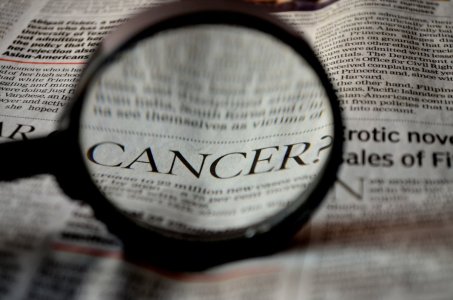The surprising health changes experts say you could experience by quitting alcohol for a month!
It's no secret that most Aussies enjoy having a beer or a glass of wine after a long day to relax.
But while it’s obvious that too much isn't the best for our health, many may still not realise the amazing changes our bodies can experience when we stop drinking liquor completely.
It may be a challenging task to be sober for a month, but experts say the health benefits could be just the motivation we need to keep going.
Week one
It sounds obvious, but cutting out booze means that you can finally wave goodbye to the hangovers.

That tired, nauseous, grumpy feeling you often get the morning after a night of drinking will be a thing of the past.
Instead, you can look forward to a much more refreshing start to your day after getting a good night's sleep.
Karen Tyrell, CEO of the charity Drinkaware, explained: ‘If you stop drinking completely, one of the first things you notice should be better sleep and finding it easier to wake up in the morning.’
‘Although some people find drinking alcohol helps them get to sleep more quickly, it disrupts the important Rapid Eye Movement (REM) stage of sleep, leaving you feeling tired the next day–no matter how long you stay in bed,’ she added.
But the benefits of avoiding alcohol extend beyond just sleep. Alcohol is a depressant, meaning it could worsen anxiety, so going sober may improve your mental health.
Ms Tyrell continued: ‘Regular drinking interferes with chemicals in the brain that are vital for good mental health. So, while you might initially feel relaxed after a drink, alcohol can contribute to feelings of depression and anxiety. Not drinking makes feelings of stress and anxiety easier to deal with.’
Week two
Staying alcohol-free can also take years off you in terms of physical appearance.
Drinking alcohol dehydrates your skin, leaving you looking bloated, dull and dry–a far cry from the glowy, youthful radiance we're all after.
This is because alcohol is a diuretic, a substance that increases the production and release of urine. When consumed, your skin is deprived of the fluids and nutrients it requires to remain healthy.
Additionally, alcohol can lead to outbreaks of psoriasis, which results in scaly skin, and rosacea, a skin condition that causes facial redness.
Moreover, consistently drinking over 14 units of alcohol weekly, which is equivalent to six pints of beer or ten small wine glasses, without any alcohol-free days, damages your liver.
Drinkaware warned that such habits can lead to jaundice, characterised by yellowing of the skin and whites of the eyes, which is a sign of severe alcohol-induced liver disease.
But as Ms Tyrell further explained, cutting out alcohol rehydrates and replenishes the skin, resulting in a much healthier, dewier complexion.
Week three
You don't even have to wait a month before seeing the results. In fact, just a few weeks without any alcohol can leave your waistline looking more toned.
According to the NHS, a pint of beer packs over 200 calories, while a typical 175ml glass of wine exceeds 150 calories. To put it in perspective, this is equivalent to the calories found in a glazed doughnut or two chocolate digestives, respectively.
‘If you're overweight and regularly drink alcohol, you should find that your weight falls noticeably after you stop,’ Ms Tyrell stated.
‘A typical pint of lager contains the same number of calories as a slice of pizza, and a large glass of wine the same as an ice cream sundae.’
‘Therefore, not drinking makes it easier to maintain a healthy weight.’
Alcoholic drinks such as wine and beer come packed with added calories due to the sugars and starch they contain.
But, these additional calories are often called ‘empty’ because they offer no nutritional value, making weight gain more likely.
Week four and beyond
Alcohol has been linked with seven different types of cancer, including bowel cancer, breast cancer, liver cancer and mouth cancer.
So, giving it up can significantly benefit your health.
It includes reducing your risk of cancer and liver disease, as per Drinkaware.
In fact, taking a break for just one month will give your liver the chance to begin its repair process and rejuvenate its cells.
‘Even though the liver is a resilient organ that can recover after damage, the risks of developing liver cancer or cirrhosis of the liver starts at low levels of drinking and increases the more you drink,’ says Ms Tyrell.

‘Stopping drinking or giving your liver a regular break can allow it a chance to repair, but the less you drink, the more you reduce your risk.’
The liver's primary roles are to detoxify the blood, balance sugar and cholesterol, and bolster immunity against infections.
Allowing it a break from alcohol lets it focus on these core tasks rather than processing booze, experts said.
Although the liver is resilient, each time it filters alcohol, some of the liver cells die, according to the National Health Service (NHS).
The bottomline? The more alcohol you drink, the harder it will be for your liver to generate new cells.

Members, what's your take on this story? Have you ever cut out alcohol and noticed health improvements like better sleep, radiant skin, or weight loss? Share your experiences with the community in the comments below!
But while it’s obvious that too much isn't the best for our health, many may still not realise the amazing changes our bodies can experience when we stop drinking liquor completely.
It may be a challenging task to be sober for a month, but experts say the health benefits could be just the motivation we need to keep going.
Week one
It sounds obvious, but cutting out booze means that you can finally wave goodbye to the hangovers.

From March 2020 to 2023, over 600,000 more Australians aged 18 and above consumed alcohol within a month, totalling 13,709,000 people or 67.6 per cent. Image: Pixabay
That tired, nauseous, grumpy feeling you often get the morning after a night of drinking will be a thing of the past.
Instead, you can look forward to a much more refreshing start to your day after getting a good night's sleep.
Karen Tyrell, CEO of the charity Drinkaware, explained: ‘If you stop drinking completely, one of the first things you notice should be better sleep and finding it easier to wake up in the morning.’
‘Although some people find drinking alcohol helps them get to sleep more quickly, it disrupts the important Rapid Eye Movement (REM) stage of sleep, leaving you feeling tired the next day–no matter how long you stay in bed,’ she added.
But the benefits of avoiding alcohol extend beyond just sleep. Alcohol is a depressant, meaning it could worsen anxiety, so going sober may improve your mental health.
Ms Tyrell continued: ‘Regular drinking interferes with chemicals in the brain that are vital for good mental health. So, while you might initially feel relaxed after a drink, alcohol can contribute to feelings of depression and anxiety. Not drinking makes feelings of stress and anxiety easier to deal with.’
Week two
Staying alcohol-free can also take years off you in terms of physical appearance.
Drinking alcohol dehydrates your skin, leaving you looking bloated, dull and dry–a far cry from the glowy, youthful radiance we're all after.
This is because alcohol is a diuretic, a substance that increases the production and release of urine. When consumed, your skin is deprived of the fluids and nutrients it requires to remain healthy.
Additionally, alcohol can lead to outbreaks of psoriasis, which results in scaly skin, and rosacea, a skin condition that causes facial redness.
Moreover, consistently drinking over 14 units of alcohol weekly, which is equivalent to six pints of beer or ten small wine glasses, without any alcohol-free days, damages your liver.
Drinkaware warned that such habits can lead to jaundice, characterised by yellowing of the skin and whites of the eyes, which is a sign of severe alcohol-induced liver disease.
But as Ms Tyrell further explained, cutting out alcohol rehydrates and replenishes the skin, resulting in a much healthier, dewier complexion.
Week three
You don't even have to wait a month before seeing the results. In fact, just a few weeks without any alcohol can leave your waistline looking more toned.
According to the NHS, a pint of beer packs over 200 calories, while a typical 175ml glass of wine exceeds 150 calories. To put it in perspective, this is equivalent to the calories found in a glazed doughnut or two chocolate digestives, respectively.
‘If you're overweight and regularly drink alcohol, you should find that your weight falls noticeably after you stop,’ Ms Tyrell stated.
‘A typical pint of lager contains the same number of calories as a slice of pizza, and a large glass of wine the same as an ice cream sundae.’
‘Therefore, not drinking makes it easier to maintain a healthy weight.’
Alcoholic drinks such as wine and beer come packed with added calories due to the sugars and starch they contain.
But, these additional calories are often called ‘empty’ because they offer no nutritional value, making weight gain more likely.
Week four and beyond
Alcohol has been linked with seven different types of cancer, including bowel cancer, breast cancer, liver cancer and mouth cancer.
So, giving it up can significantly benefit your health.
It includes reducing your risk of cancer and liver disease, as per Drinkaware.
In fact, taking a break for just one month will give your liver the chance to begin its repair process and rejuvenate its cells.
‘Even though the liver is a resilient organ that can recover after damage, the risks of developing liver cancer or cirrhosis of the liver starts at low levels of drinking and increases the more you drink,’ says Ms Tyrell.

In Australia, alcohol is responsible for approximately 3,500 cancer cases (around 3 per cent of new diagnoses) and more than 2,000 cancer-related deaths each year. Image: Pixabay
‘Stopping drinking or giving your liver a regular break can allow it a chance to repair, but the less you drink, the more you reduce your risk.’
The liver's primary roles are to detoxify the blood, balance sugar and cholesterol, and bolster immunity against infections.
Allowing it a break from alcohol lets it focus on these core tasks rather than processing booze, experts said.
Although the liver is resilient, each time it filters alcohol, some of the liver cells die, according to the National Health Service (NHS).
The bottomline? The more alcohol you drink, the harder it will be for your liver to generate new cells.
Key Takeaways
- Experts suggest giving up alcohol completely for a month can bring health benefits, including better sleep, glowing skin and a slimmer waistline.
- Avoiding alcohol for a few weeks can rejuvenate the skin, as alcohol leads to a bloated, dry, and dull complexion.
- Avoiding alcohol can help with weight loss since it has roughly the same calories per gramme as pure fat.
- Reducing or stopping alcohol consumption benefits the liver, allowing it to repair and regenerate cells, thus reducing the risk of liver diseases.







